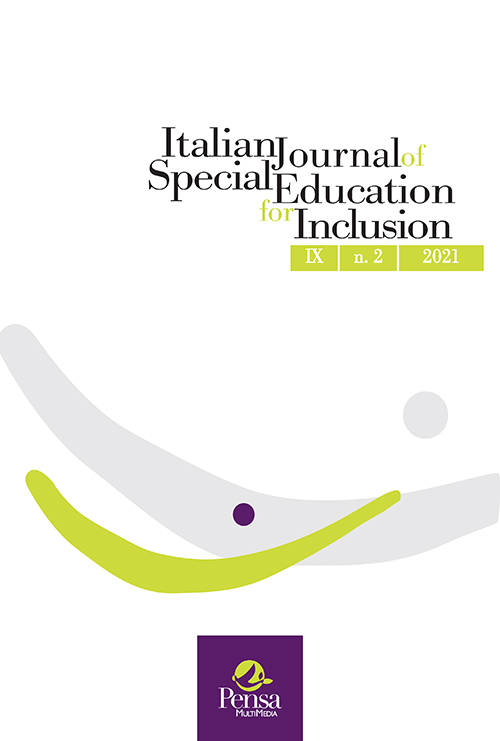Intellectual impairment and (new) forms of residential services in Italy. Good practices towards inclusion
DOI:
https://doi.org/10.7346/sipes-02-2021-06Abstract
This article intends to present and discuss the results of a research, which was carried out in the years 2015‐2018 and has investigated the residential services, intended for people with intellectual impairment, developed in Italy, Germany and Switzerland also in light of the ratification of the UN Convention (which respectively took place in 2009 for Italy and for Germany, and in 2014 for Switzerland). In this paper, we have chosen to focus the attention on the good practices ob‐served in Italy, because it was the first country to promote a process of deinstitutionalization since 1978, as well as it has been started since 1975 with the Final Report of the Falcucci Commission what can be called the way to school inclusion. The multiple case study, conducted through the qualitative‐quantitative methodology, shows the presence in Italy of nu‐merous nursing homes and some recent experiences of group homes or houses (following the name of the Local Health Authority of Pordenone) not deriving in any case from the enactment of the aforementioned UN Convention, which ‐ in relation to facilities for people with intellectual impairment ‐ seems to have had a greater impact in Germany where the right to independent living enshrined in the Convention finds a response in the existence and in the new construction of inclusive homes.


